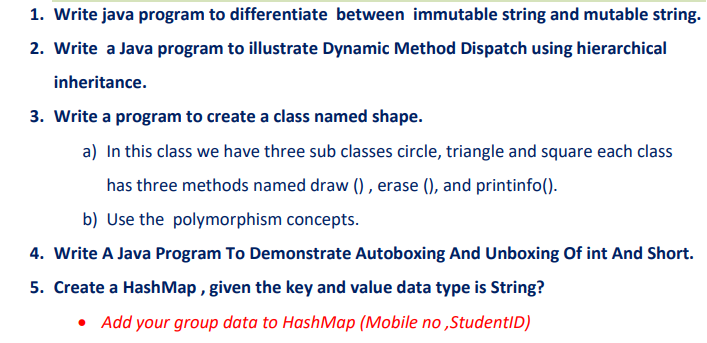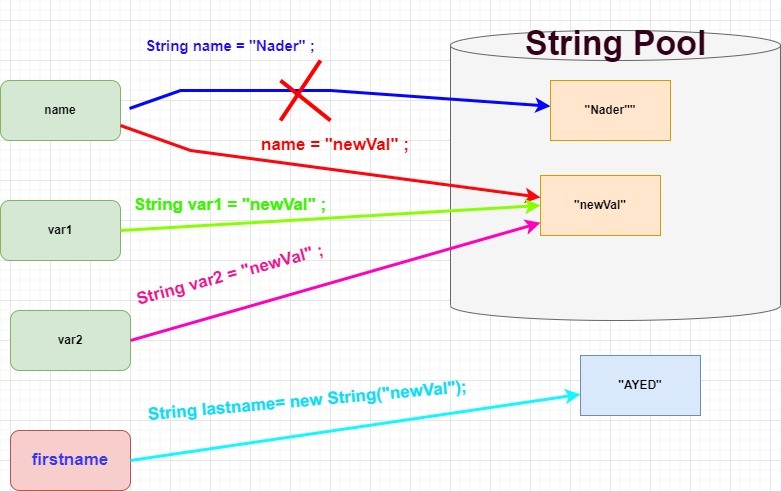Why Are Strings Immutable in Java? Enhancing Code Reliability
Discovering the Advantages of Unalterable Strings in Modern Programs Paradigms
In the world of contemporary shows standards, the principle of unalterable strings stands as a foundation of robust software advancement. By adopting immutable strings, designers can ensure enhanced data integrity, enhanced string safety and security, streamlined debugging procedures, boosted safety measures, and reliable efficiency optimization.
Boosted Information Stability

By preventing the alteration of string items, immutability eliminates the danger of unintentional changes to the data they hold. This not just enhances the safety of the information but likewise improves the reliability of the code that relies upon these strings.
Immutability likewise supports safer multithreading settings, as concurrent accessibility to immutable strings does not present the threat of data corruption with simultaneous adjustments. This residential or commercial property streamlines the procedure of dealing with strings in identical shows scenarios.
Essentially, immutability functions as a protective guard around the data stored within strings, improving their stability by making certain that once defined, their worths continue to be unmodified throughout the program's execution.

Enhanced Thread Security
Unalterable strings boost the string safety of programs by making sure that once a string object is created, its worth can not be changed. This residential property removes the danger of simultaneous strings trying to modify the very same string concurrently, which could result in information corruption or inconsistent states in the program - Why are strings immutable in Java?. In a multi-threaded atmosphere, where several threads accessibility and manipulate information at the same time, the immutability of strings provides a degree of security by ensuring that the information remains the same throughout its lifecycle
Streamlined Debugging Processes
Offered the improved string security promoted by unalterable strings, a considerable advantage occurs in the realm of simplified debugging processes. Immutable strings, as soon as created, can not be altered, making it less complicated to map the circulation of data and recognize the resource of pests in a program. This immutability guarantees that strings remain consistent throughout the implementation of the program, decreasing the probability of unexpected changes that can cause mistakes.
When debugging with mutable strings, developers often run into concerns where a string's worth is customized inadvertently, making it testing to pinpoint the root cause of a bug. Nonetheless, with immutable strings, the data remains the same, allowing designers to concentrate on analyzing the real reasoning of the code instead than tracking down where and when a string was modified incorrectly.
Additionally, immutable strings streamline the debugging procedure by allowing easier reproduction of insects. Considering that unalterable strings do not transform state, developers can recreate and examine pests more properly, causing quicker identification and resolution of problems within the codebase. This structured debugging workflow ultimately adds to higher software quality and boosted overall development efficiency.

Enhanced Protection Actions
Enhancing data security and fortifying system stability, the usage of immutable strings in software applications contributes considerably to enhanced safety measures. Immutable strings, once developed, can not be changed, offering an important protection against harmful tampering or unauthorized gain access to. By making sure that delicate data kept in strings remains unchanged throughout the program's execution, the threat of information breaches or injection assaults is substantially lowered. Why are strings immutable in Java?. Unalterable strings also play an important role in stopping usual security susceptabilities such as buffer overflows and SQL shot assaults, as efforts to adjust string information at runtime are inherently limited.
Furthermore, the look at this now immutability of strings improves the predictability of program habits, making it simpler to verify inputs and prevent unanticipated adjustments that might endanger safety and security. This predictability simplifies the process of bookkeeping and validating code, allowing programmers to recognize possible protection technicalities better. Overall, including unalterable strings right into software application growth methods not only enhances the robustness and reliability of applications but also enhances their durability versus safety hazards.
Reliable Efficiency Optimization
Building upon the structure of increased security measures achieved via the use of unalterable strings, a crucial facet to take into consideration in software application growth is effective performance optimization. When taking care of mutable strings, operations like concatenation or substring production frequently result in the creation of brand-new string things, causing memory overhead and raised handling time. However, with immutable strings, these operations can be optimized to enhance performance. By allowing strings to stay stable and constant, unalterable strings facilitate much better memory administration and caching possibilities, inevitably improving the general effectiveness of the software.
Considering that unalterable strings can not be modified once developed, they can be shared across threads without the danger of unforeseen adjustments, reducing the demand for synchronization devices and enhancing concurrency. Immutable strings simplify debugging procedures as programmers can trust that a string's worth will remain constant throughout the program's implementation, getting rid of potential mistakes triggered by mutable state changes.
Final Thought
Finally, the benefits of making use of unalterable strings in contemporary shows paradigms can not be overemphasized. Enhanced data stability, improved thread safety and security, simplified debugging procedures, raised safety procedures, and reliable efficiency optimization all add to the total performance of programs tasks. By incorporating immutable strings into programming methods, programmers can gain from a much more durable and trusted codebase.
Immutability, a vital feature of strings in programming languages such as Java and Python, makes certain that once a string item is developed, it can not be altered or changed.Immutable strings enhance the thread safety and security of programs by guaranteeing his explanation that as soon as a string item is produced, its worth can not be customized. Immutable strings likewise play an important duty in stopping typical safety susceptabilities such as barrier overflows and SQL shot here attacks, as attempts to manipulate string data at runtime are naturally restricted.
By enabling strings to remain unchangeable and consistent, unalterable strings assist in better memory administration and caching chances, eventually increasing the overall performance of the software program.
Immutable strings simplify debugging processes as developers can rely on that a string's worth will continue to be constant throughout the program's execution, eliminating potential mistakes triggered by mutable state adjustments.